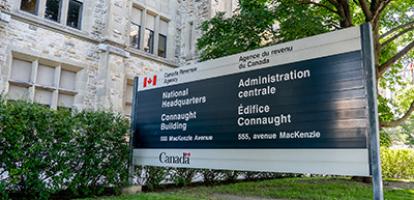From: Alexandre Laurin and Nick Dahir
To: Tax observers
Date: November 13, 2024
Re: The Unreliability of Capital Gains Tax Revenue Projections: A Wake-Up Call
Recent data from Statistics Canada highlight the volatility of capital gains realizations, casting doubt on the reliability of projected revenues from the recent capital gains tax hike – a point we emphasized in our recent E-Brief.
Capital gains realizations are highly cyclical and sensitive to market conditions. That uncertainty makes reliance on them risky. Adding to this are higher taxes, which can alter both the timing and the amount of gains.
Average capital gains from the top 1 percent of filers decreased by a staggering 30.3 percent from 2021 to 2022, The Daily reported on October 28. This drop is entirely due to market fluctuations – occurring long before the Budget 2024 tax changes. This drop for high income filers is particularly noteworthy because they are the primary targets of the personal capital gains tax hike, which, as of last June, now applies a higher inclusion rate to capital gains exceeding $250,000.
We do not know whether Finance Canada anticipated this sharp decline when preparing its budget revenue projections early this year. If not, the budget’s personal income tax revenue estimates may be overly optimistic – after all, the budget’s projected five-year cumulative personal income tax revenues from the hike are on the high-side, exceeding both the Parliamentary Budget Officer’s estimate and our own. This may pose a problem for two key reasons. The projected revenue bump has been extensively used to defend the capital gains tax increase. And the anticipated additional revenue has already been earmarked for new program expenses. If actual revenues fall short, funding for these initiatives would need to come from other sources.
Overall, total capital gains for all filers dropped more than 26 percent from 2021 to 2022. Our E-Brief anticipated this decline, aligning our pre-hike baseline projection for Canada with US projections from the Congressional Budget Office (CBO). Given the high correlation between US and Canadian personal capital gains realizations, we expected a similar trend in Canada. In the US, realizations plummeted from almost 9 percent of GDP in 2021 to under 5 percent of GDP in 2022 according to recent estimates (June 2024). CBO is not projecting realizations to climb back to their 2021 high in the foreseeable future, and indeed, they are expected to remain at lower levels of GDP and moderately decline further over the next decade.
We do not know how much, if at all, the budget took these dynamics into consideration. However, the sharp decline recorded in 2022 in Canada is in line with our assumptions and certainly raises the likelihood of revenues falling short of expectations. We estimated that the capital gains tax hike will generate less revenue than projected in the budget or even by the PBO.
This uncertainty should prompt policymakers to be prudent when projecting revenues from capital gains tax hikes for budgeting purposes. Overestimating these volatile revenues can lead to budget deficits down the road and undermine the funding of essential programs.
Alexandre Laurin is Vice-President and Director of Research at the C.D. Howe Institute, where Nick Dahir is a Research Officer.
To send a comment or leave feedback, email us at blog@cdhowe.org.
The views expressed here are those of the authors. The C.D. Howe Institute does not take corporate positions on policy matters.




